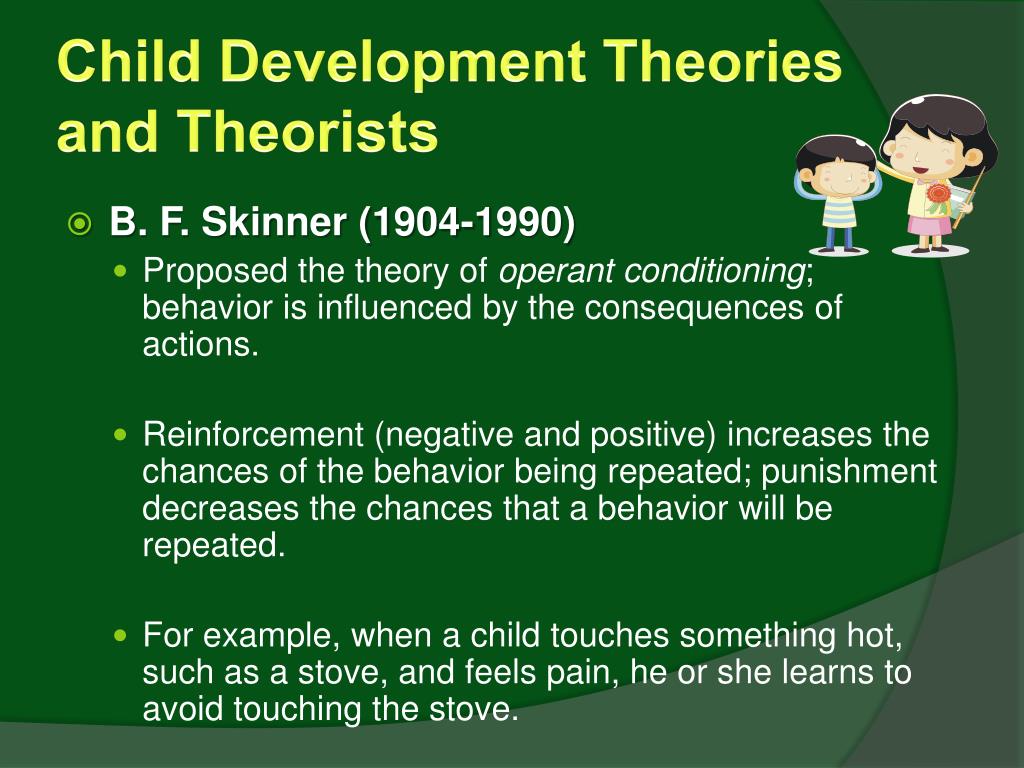
PPT Child Development Theories and Theorists PowerPoint Presentation ID2746060
The Ph.D. in Special Education in the Department of Early Childhood, Multilingual, and Special Education is designed with an emphasis in the development of skills in scientific inquiry and leadership. Students enrolled in this study program gain an understanding of philosophy and theory as they relate to the conduct of research and program evaluation. Graduates pursue careers in schools.
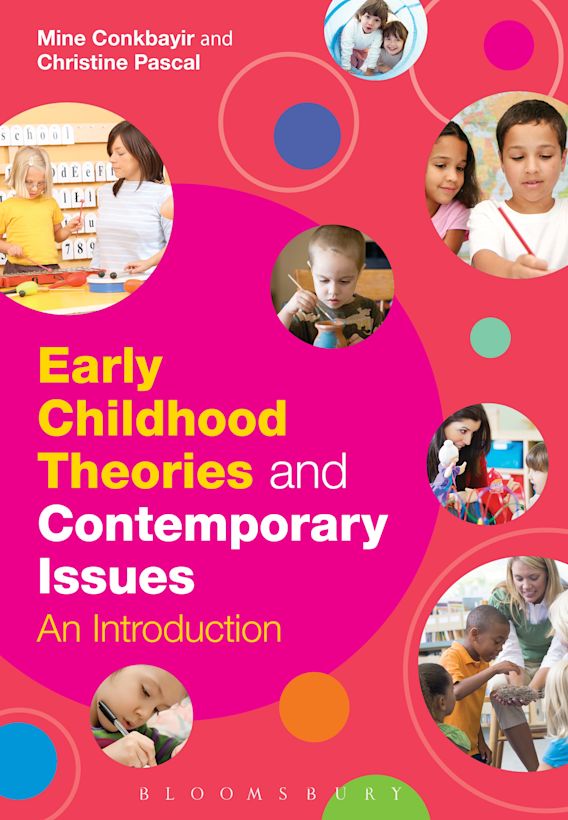
Early Childhood Theories and Contemporary Issues An Introduction Mine Conkbayir Bloomsbury
child development and learning; after those components are in place, love of children can be added to the "quality equation." This change in teacher qualifications for the "quality equation" is simultaneously a reflection and a driving force of the current context for early childhood education.

Pin by Childcare Experts on Theorists of Child Development Child development theories, Early
There are many child development theories that have been proposed by theorists and researchers. Some of the major theories of child development are known as grand theories; they attempt to describe every aspect of development, often using a stage approach.

Psychologist Jean Piaget suggested that children go through four key stage… Child development
Theorists presented include Sigmund Freud, Maria Montessori, Arnold Gesell, Lev Vygotsky, Jean Piaget, Rudolf Dreikurs, Erik Erikson, Abraham Maslow, John Bowlby, B. F. Skinner, Benjamin Spock, Lawrence Kohlberg, T. Berry Brazelton, Diana Baumrind, and Howard Gardner. Viewable/printable educational resources are available online. more.

7 de las teorías más conocidas del desarrollo infantil Tecnicas de aprendizaje
13 min of reading 12 May 2023 Whether it's Piaget's Theory, Vygotsky Theory, Skinner's Behaviourist Theory or something new, child development theories underpin our interactions with children in the nursery. Some we may be aware of, and others naturally shape how we understand children and how they learn.

Child Development Theorists Chart Well Known Theorists Theory Physica l Cogniti ve Emotion al
Theories are the big ideas that come from research and wise thinking over time. Early childhood educators may be familiar with a number of theorists from their studies or reading, such as Montessori, Piaget, Vygotsky, Steiner, Bowlby, Bronfenbrenner, Rogoff, or Foucault.

Pin on Infographics
Theorists and their developmental theories: Early Child Development and Care: Vol 191, No 7-8 Home All Journals Early Child Development and Care List of Issues Volume 191, Issue 7-8 Theorists and their developmental theori.. Early Child Development and Care Volume 191, 2021 - Issue 7-8: Early Childhood Theorists and Pioneers 10,850 Views 2

Posters / Signs EYLF Theorist Pack Early childhood education curriculum, Childhood
14 Mins Read There are so many child development theorists and theories that one may easily be forgiven for getting overwhelmed. However, if you categorise them neatly, then according to the time these theories emerged, you can paint a pretty compact digestible picture. That's what this blog aims to do.
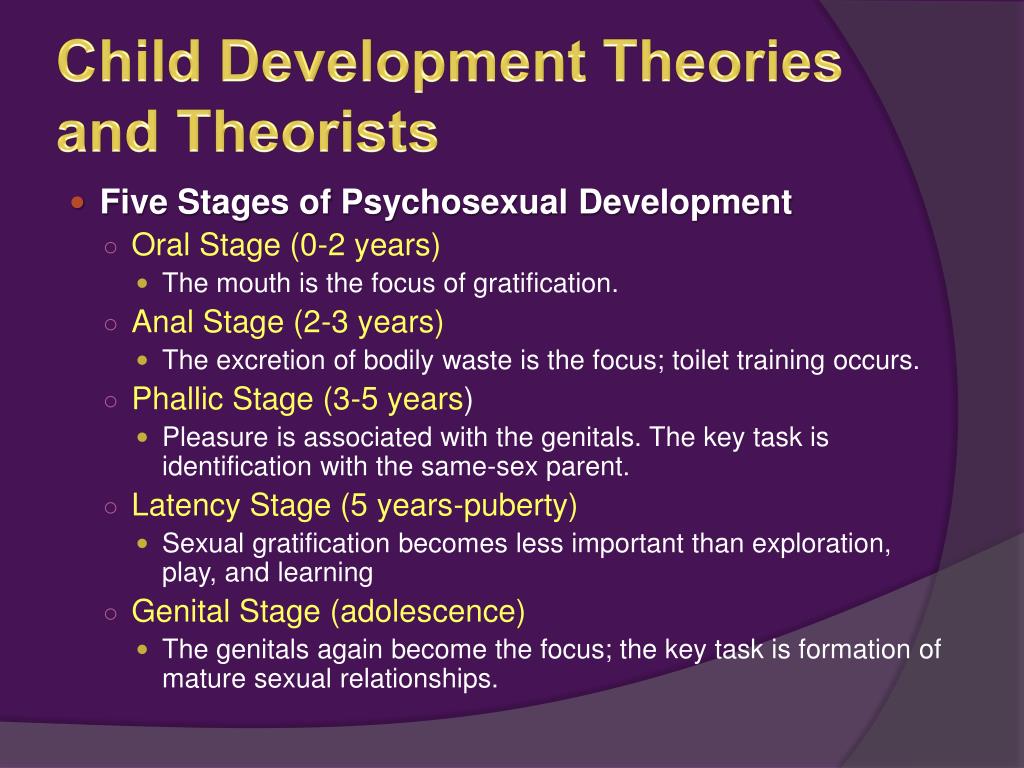
PPT Child Development Theories and Theorists PowerPoint Presentation ID2746060
Early Life and Background. Findings and Philosophies. Three Operants of B.F. Skinner's Theory. Significant of Philosophy for Child Development. Erik Erikson. Early Life and Background. Findings and Philosophies. Significance of Philosophy for Child Development. Arnold Gesell.
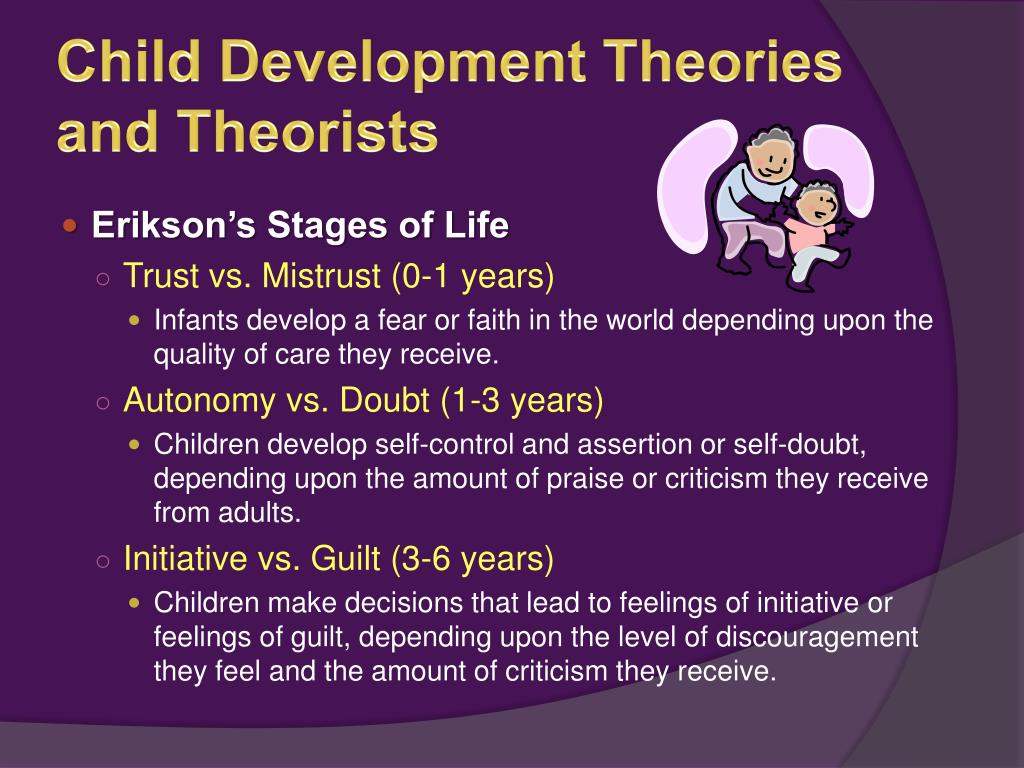
PPT Child Development Theories and Theorists PowerPoint Presentation ID2746060
Many theorists have influenced our understanding of early childhood and the way humans learn and develop. Some theorists sought to awaken society to the discrepancies in traditional education.

PPT Child Development Theories and Theorists PowerPoint Presentation ID2746060
Jean Piaget was born in Switzerland on August 9, 1896, and began showing an interest in the natural sciences at a very early age. Early Life .. Piaget's cognitive development theory changed the way we look at child development—namely, that children have different thought processes than adults. His contributions greatly influenced future.
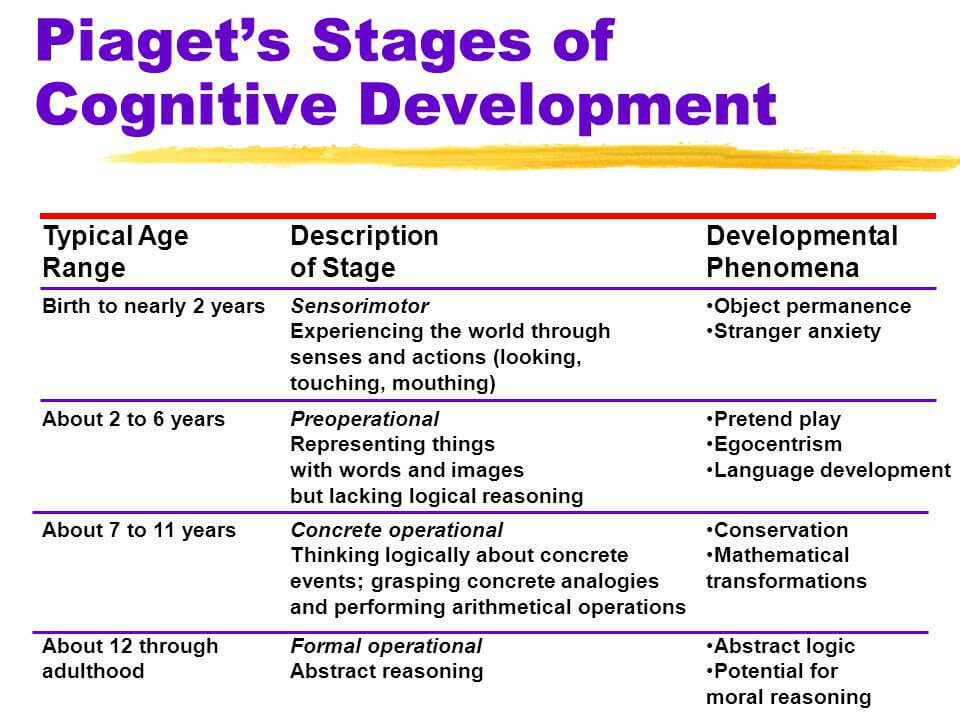
Preparing For The Stages Of Early Childhood Development Betterhelp
Piaget's theory of learning incorporated his Stages of Development: Birth to about 2 years old - Sensorimotor About the time the child begins talking to around 7 years old - Preoperational About the time the child enters 1st grade until early adolescence - Concrete Adolescence - Formal Operations

Theories On Early Childhood Reading Development Learning How to Read
It focuses on five theories that have had the most impact: maturationist, constructivist, behavioral, psychoanalytic, and ecological. Each theory offers interpretations on the meaning of children's development and behavior. Although the theories are clustered collectively into schools of thought, they differ within each school.

PPT Child Development Theories and Theorists PowerPoint Presentation ID2746060
Piaget proposed four major stages of cognitive development, and called them (1) sensorimotor intelligence, (2) preoperational thinking, (3) concrete operational thinking, and (4) formal operational thinking. Each stage is correlated with an age period of childhood, but only approximately. Formal operational thinking appears in adolescence. 4.

Early childhood theorists and their theories. Human Growth And Development, Child Development
The theories proposed by Sigmund Freud stressed the importance of childhood events and experiences but almost exclusively focused on mental disorders rather than normal functioning. According to Freud, children progress through a series of psychosexual stages.
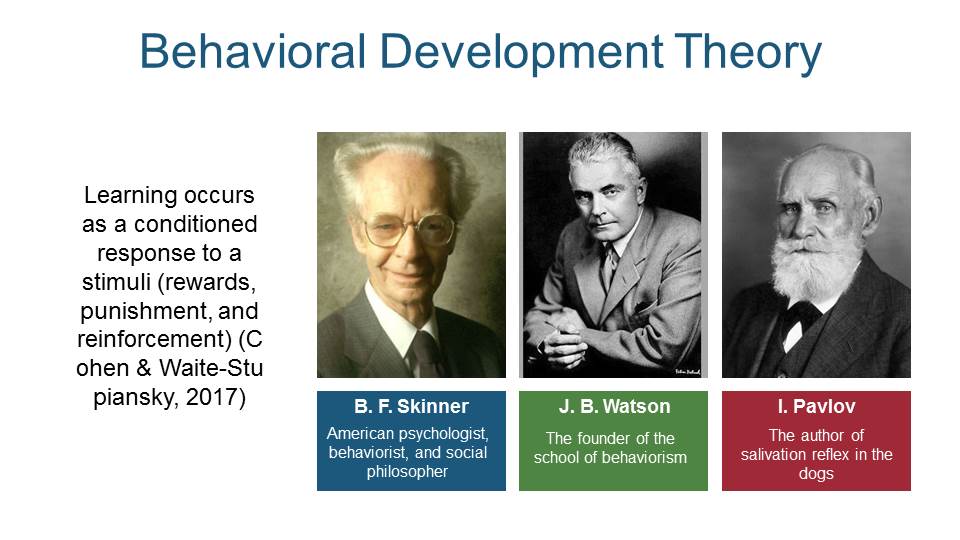
Albert bandura child development theory. Social Learning Theory of Albert Bandura Analysis
Jean Piaget He discovered that all children's intellectual development progressed through four stages, beginning in infancy and are completed by adolescence. Thinking becomes more and more complex as the child ages. Each stage of thinking causes the child to see the world in a different way.